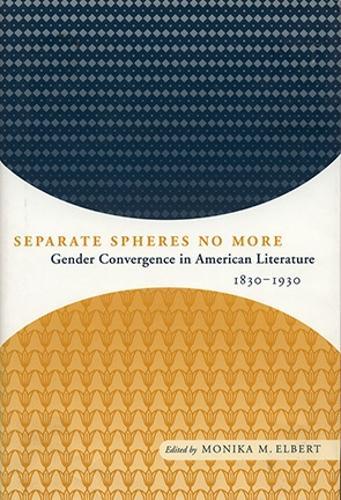Overview
Although they wrote in the same historical milieu as their male counterparts, women writers of the 19th- and early 20th-centuries have generally been """"ghettoised"""" by critics into a separate canonical sphere. These original essays argue in favour of reconciling male and female writers, both historically and in the context of classroom teaching. While some of the essays pair up female and male authors who write in a similar style or with similar concerns, others address social issues shared by both men and women, including class tensions, economic problems, and the Civil War experience. Rather than privileging particular genres or certain well-known writers, the contributors examine writings ranging from novels and poetry to autobiography, utopian fiction, and essays. And they consider familiar figures like Harriet Beecher Stowe, Emily Dickinson, and Ralph Waldo Emerson alongside such lesser-known writers as Melusina Fay Peirce, Susie King Taylor, and Mary Gove Nichols. Each essay revises the binary notions that have been ascribed to males and females, such as public and private, rational and intuitive, political and domestic, violent and passive. Although they do not deny the existence of separate spheres, the contributors show the boundary between them to be much more blurred than has been assumed until now.
Full Product Details
Author: Monika M. Elbert
Publisher: The University of Alabama Press
Imprint: The University of Alabama Press
Edition: 3rd ed.
Dimensions:
Width: 15.40cm
, Height: 2.00cm
, Length: 23.30cm
Weight: 0.525kg
ISBN: 9780817357795
ISBN 10: 0817357793
Pages: 320
Publication Date: 30 July 2014
Audience:
College/higher education
,
Undergraduate
,
Postgraduate, Research & Scholarly
Format: Paperback
Publisher's Status: Active
Availability: In Print

This item will be ordered in for you from one of our suppliers. Upon receipt, we will promptly dispatch it out to you. For in store availability, please contact us.
Reviews
This collection enters vigorously into ongoing conversations about the shape and future of the American literary canon. Offering a compelling view of many neglected writers and new ways to read familiar ones, the collection will appeal to a wide readership. Innovative and interesting. --Karen L. Kilcup, University of North Carolina-Greensboro Separate Spheres No More makes a significant contribution to recent revisionist work by feminist scholars who are questioning the idea of 'separate spheres' and 'the cult of true womanhood.' Like earlier feminist literary criticism, this collection represents a logical outgrowth of new cultural-historical scholarship, as it reveals 19th- and early 20th-century women exercising public power and effecting social change. --Leland S Person, The University of Alabama at Birmingham Monika Elbert's essay collection offers a powerful contribution to the ongoing reexamination of separate spheres in nineteenth- and earlytwentieth century American and in American literary criticism. --South Atlantic Review
Monika Elbert's essay collection offers a powerful contribution to the ongoing reexamination of separate spheres in nineteenth- and earlytwentieth century American and in American literary criticism. --South Atlantic Review
Monika Elbert s essay collection offers a powerful contribution to the ongoing reexamination of separate spheres in nineteenth- and earlytwentieth century American and in American literary criticism. <i>South Atlantic Review</i>
Separate Spheres No More makes a significant contribution to recent revisionist work by feminist scholars who are questioning the idea of 'separate spheres' and 'the cult of true womanhood.' Like earlier feminist literary criticism, this collection represents a logical outgrowth of new cultural-historical scholarship, as it reveals 19th- and early 20th-century women exercising public power and effecting social change. --Leland S Person, The University of Alabama at Birmingham
Monika Elbert's essay collection offers a powerful contribution to the ongoing reexamination of separate spheres in nineteenth- and earlytwentieth century American and in American literary criticism. -- South Atlantic Review
Author Information
Monika M. Elbert is Associate Professor of English at Montclair State University, New Jersey, USA.




